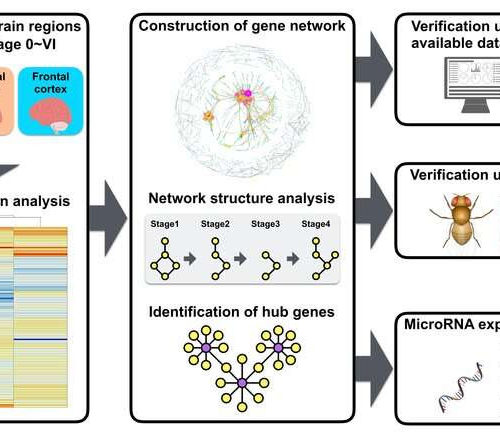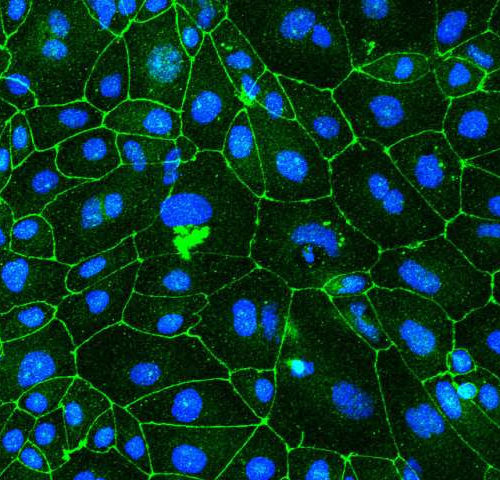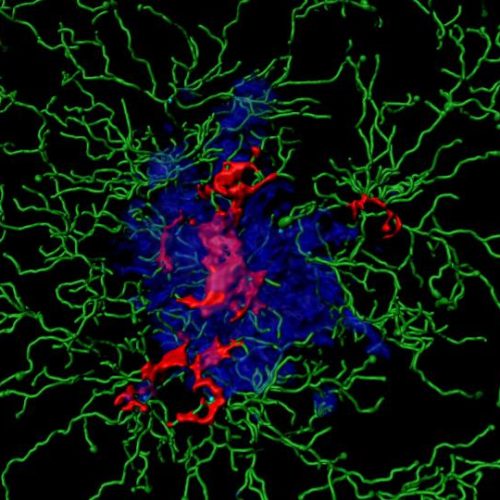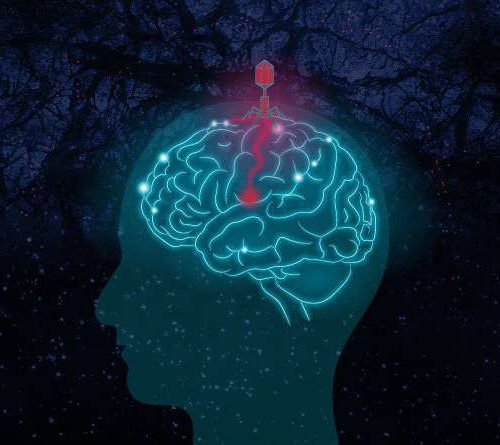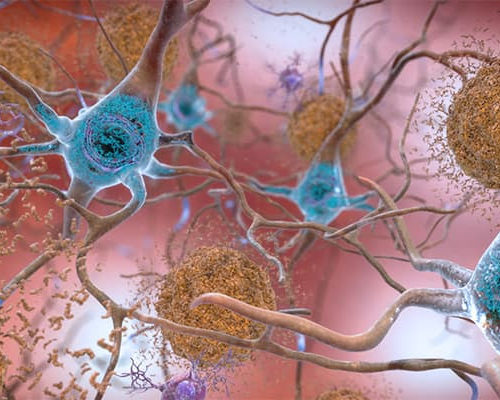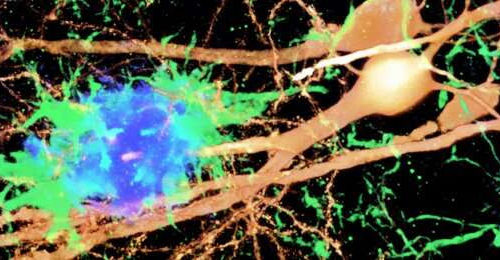by University of Tokyo Experts at the University of Tokyo have identified a new protein in the pathway that leads to Alzheimer’s disease. Researchers used the “molecular scissors” of CRISPR/Cas9 to search for new genes related to the neurodegenerative disease. The exact causes of Alzheimer’s disease remain unknown, but one of the most well-supported theories...
Category: <span>Alzheimer’s</span>
Large-scale analysis links glucose metabolism proteins to Alzheimer’s disease biology
NIH-funded research reveals protein network changes that may be druggable targets, biomarkers NIH/NATIONAL INSTITUTE ON AGING In the largest study to date of proteins related to Alzheimer’s disease, a team of researchers has identified disease-specific proteins and biological processes that could be developed into both new treatment targets and fluid biomarkers. The findings suggest that...
Gene-network analysis is a valuable new tool for understanding Alzheimer’s disease
by Osaka University Alzheimer’s disease (AD) is known to involve interactions among many different genes, making it difficult to pinpoint the specific mechanisms. But now, researchers from Japan have found a new way to identify genes implicated in neurodegeneration in AD. In a study published this month in Human Molecular Genetics, researchers from Osaka University,...
UCI-led study finds modifiable risk factors could play a role in Alzheimer’s disease
Amyloid accumulation not the only risk factor in Alzheimer’s risk UNIVERSITY OF CALIFORNIA – IRVINE Irvine, Calif. – April 8, 2020 – Amyloid is a key feature of Alzheimer’s disease, but the accumulation of these sticky proteins may not be the only risk factor for developing Alzheimer’s disease, according to a new study published this...
More evidence ultrasound can help in battle against Alzheimer’s disease
by QIMR Berghofer Medical Research Institute A new QIMR Berghofer study has added weight to the potential benefits of using ultrasound treatment to deliver disease-targeting drugs to Alzheimer’s patients. The study is the first to examine the technique on brain cells derived from human patients with Alzheimer’s disease, building on previous research on mice and...
Alzheimer’s disease: Inflammation triggers fatal cycle
University of Bonn study proves disastrous contribution of an ancient immune mechanism UNIVERSITY OF BONN An immune reaction in the brain seems to play a major role in the development of Alzheimer’s disease. In a way, it “adds fuel to the fire” and apparently causes an inflammation that, in a sense, keeps kindling itself. The...
Could disease pathogens be the dark matter behind Alzheimer’s disease?
by Richard Harth, Arizona State University For researchers investigating Alzheimer’s Disease (AD), a devastating neurodegenerative illness afflicting close to 6 million Americans, it is the best and worst of times. Scientists have made exponential advances in understanding many aspects of the mysterious disease since it was first diagnosed over 100 years ago. Nevertheless, every effort...
Newly identified biomarker offers fresh hope for early Alzheimer’s diagnosis
by Edith Cowan University A global team of researchers has discovered a new biomarker that could be used to detect Alzheimer’s disease decades before symptoms emerge. Alzheimer’s disease affects more than 340,000 Australians and it is well documented that early diagnosis is the best hope for effective treatment. The study, published in Nature Medicine, examined...
Scientists design new model to further understand causes of Alzheimer’s disease
The Multiplex Model is a new way of looking at Alzheimer’s disease developed by Professor Julie Williams, Dr Rebecca Sims and Dr Matt Hill of the University’s UK Dementia Research Institute (UKDRI) and unveiled in the Journal Nature Neuroscience. The model was produced by looking at all known genetic risk factors to further understanding of...
Connecting interferon, neuroinflammation and synapse loss in Alzheimer’s disease
by Ana María Rodríguez, Ph.D., Baylor College of Medicine When immunologist Dr. Wei Cao joined Baylor College of Medicine three-and-a-half years ago, her first project was to investigate how inflammation contributes to Alzheimer’s disease. “Alzheimer’s is the most common cause of dementia among older adults. The current understanding is that, in addition to having beta-amyloid...


